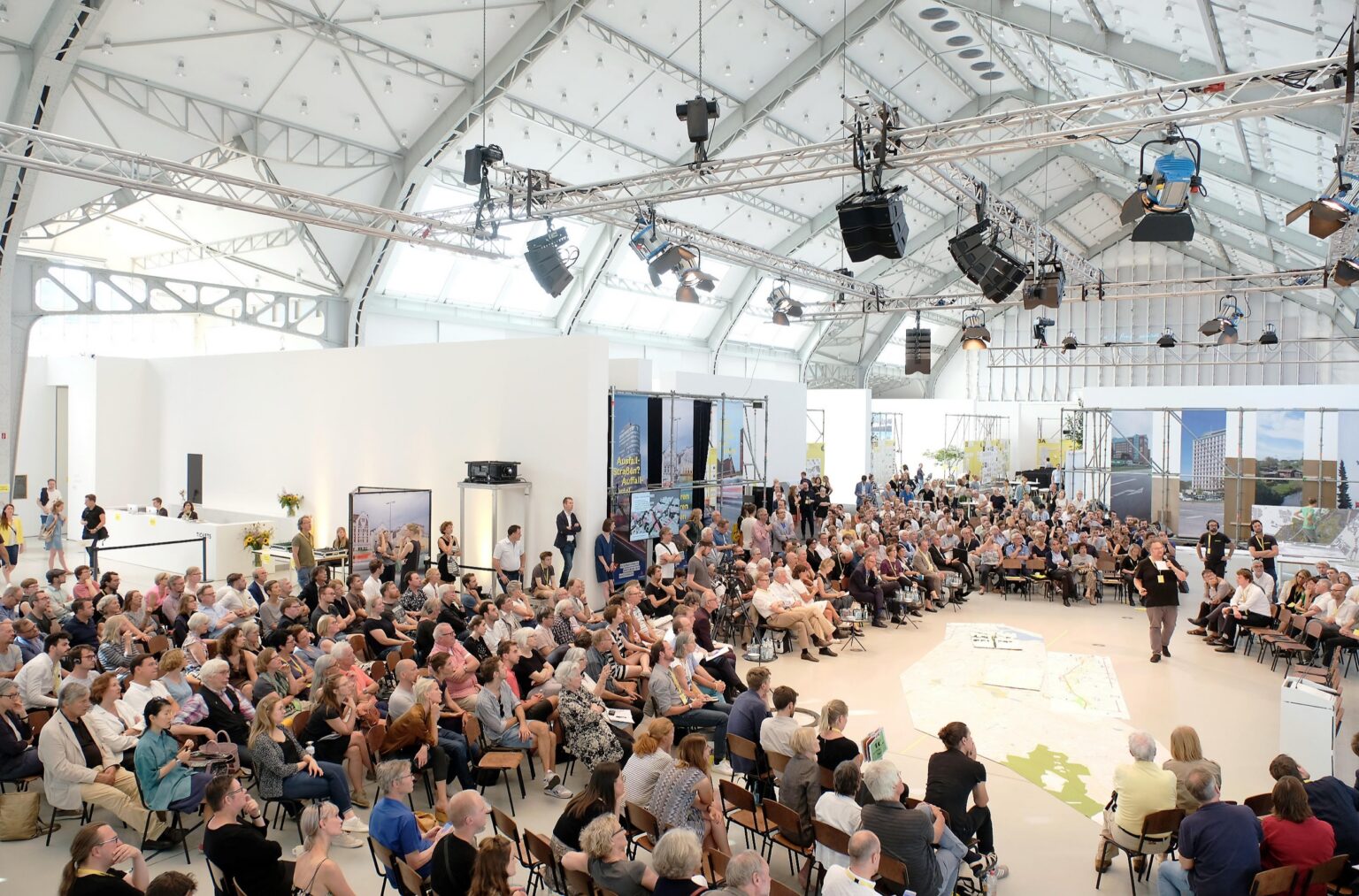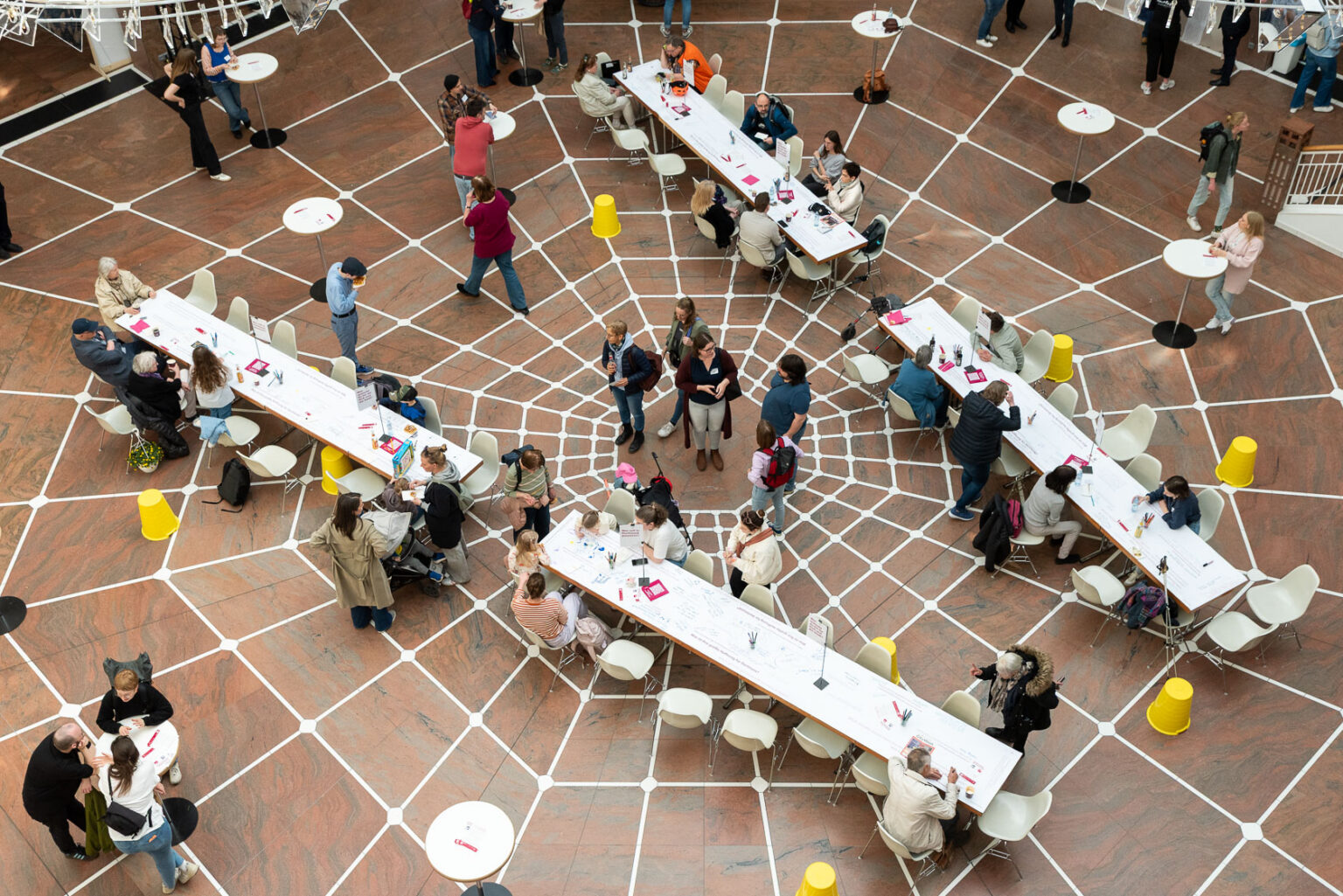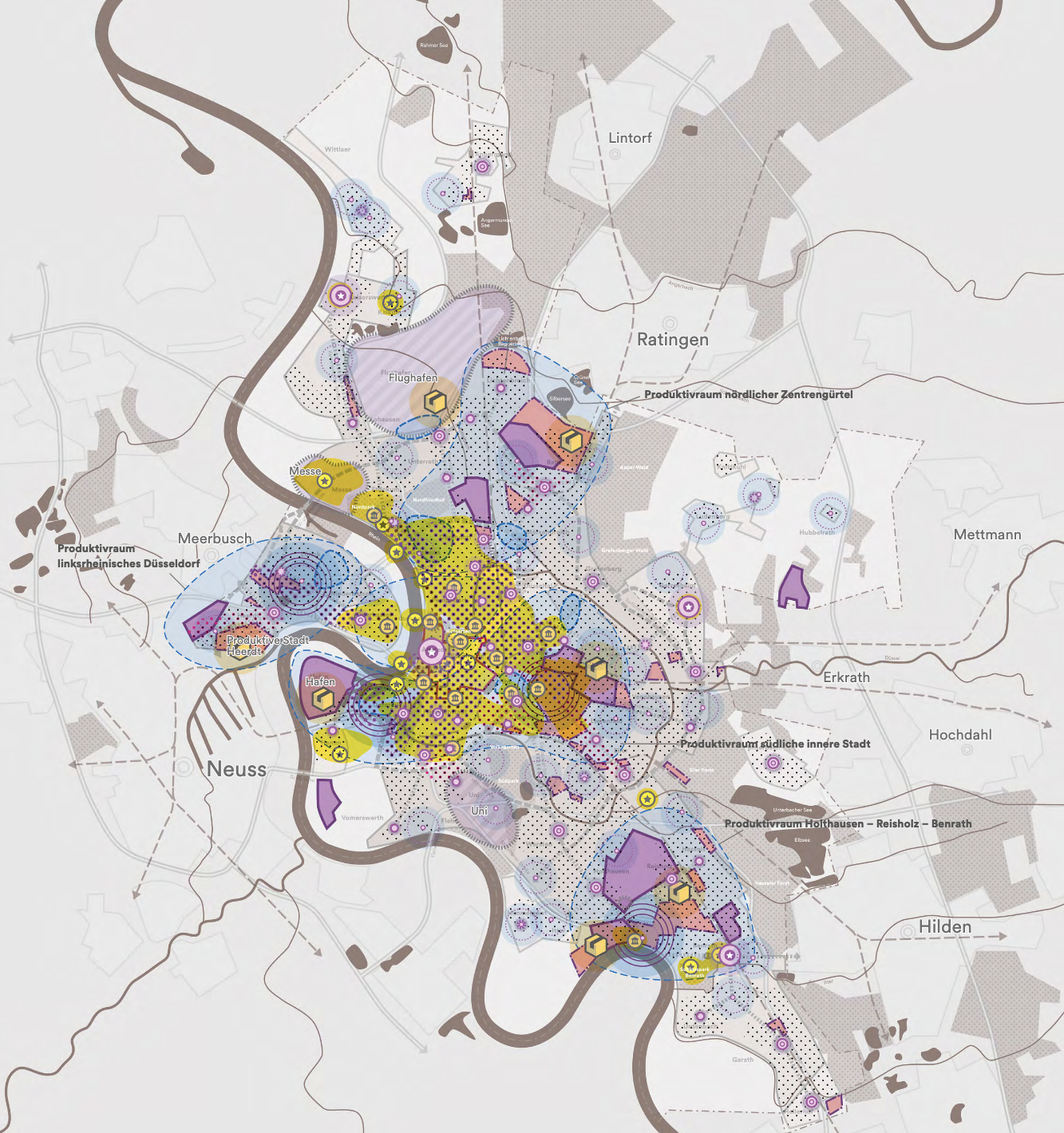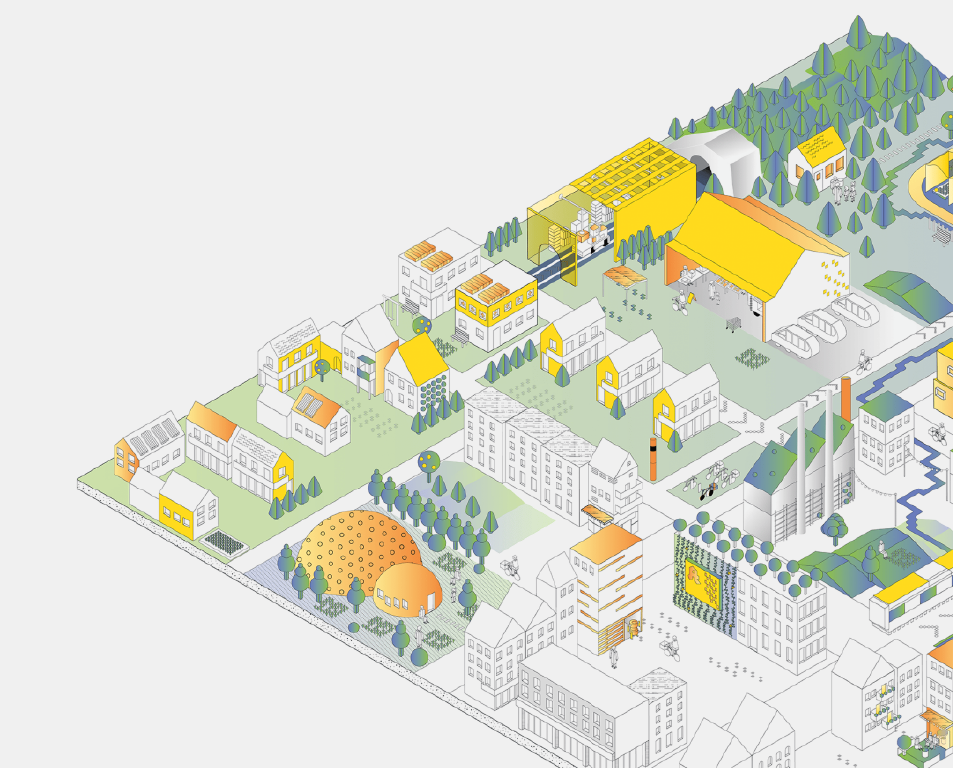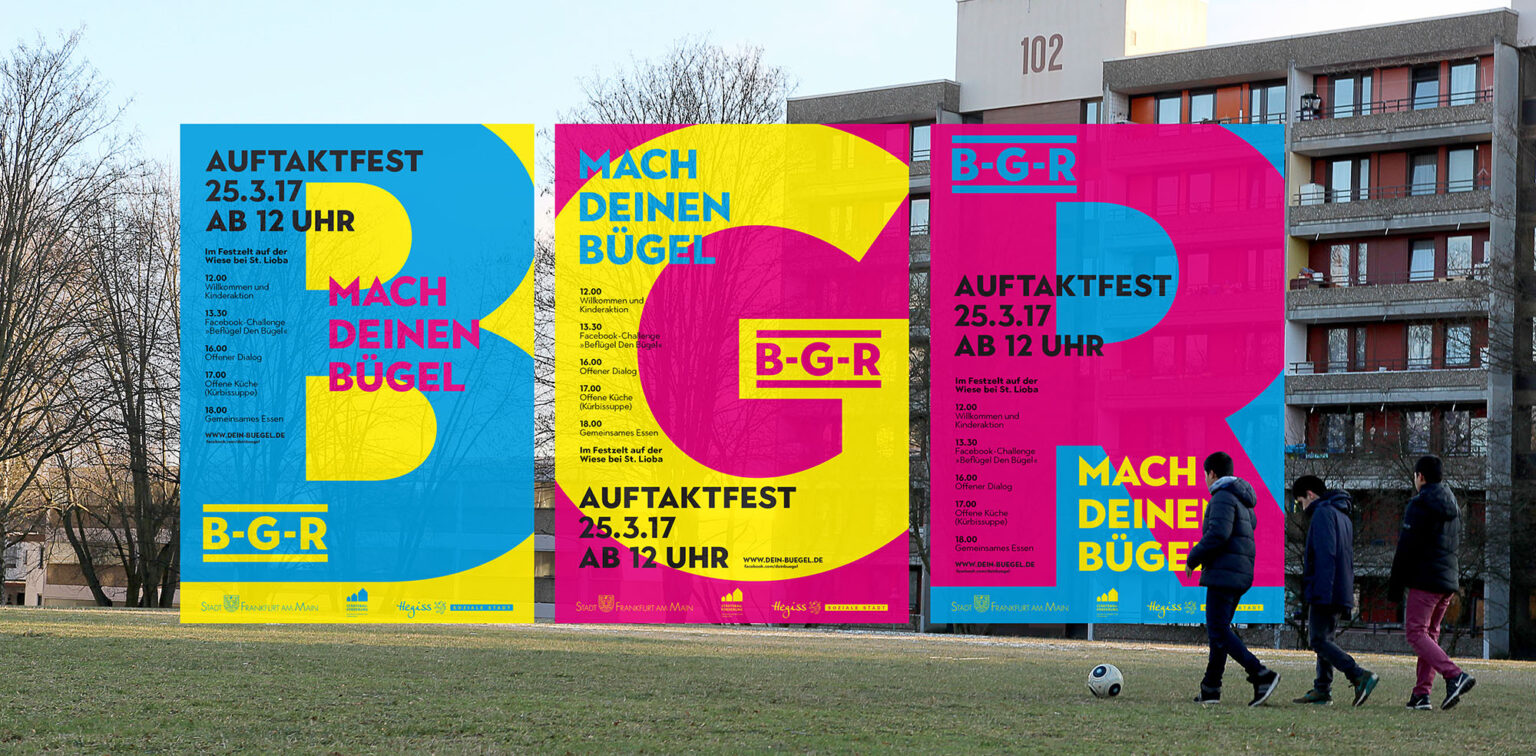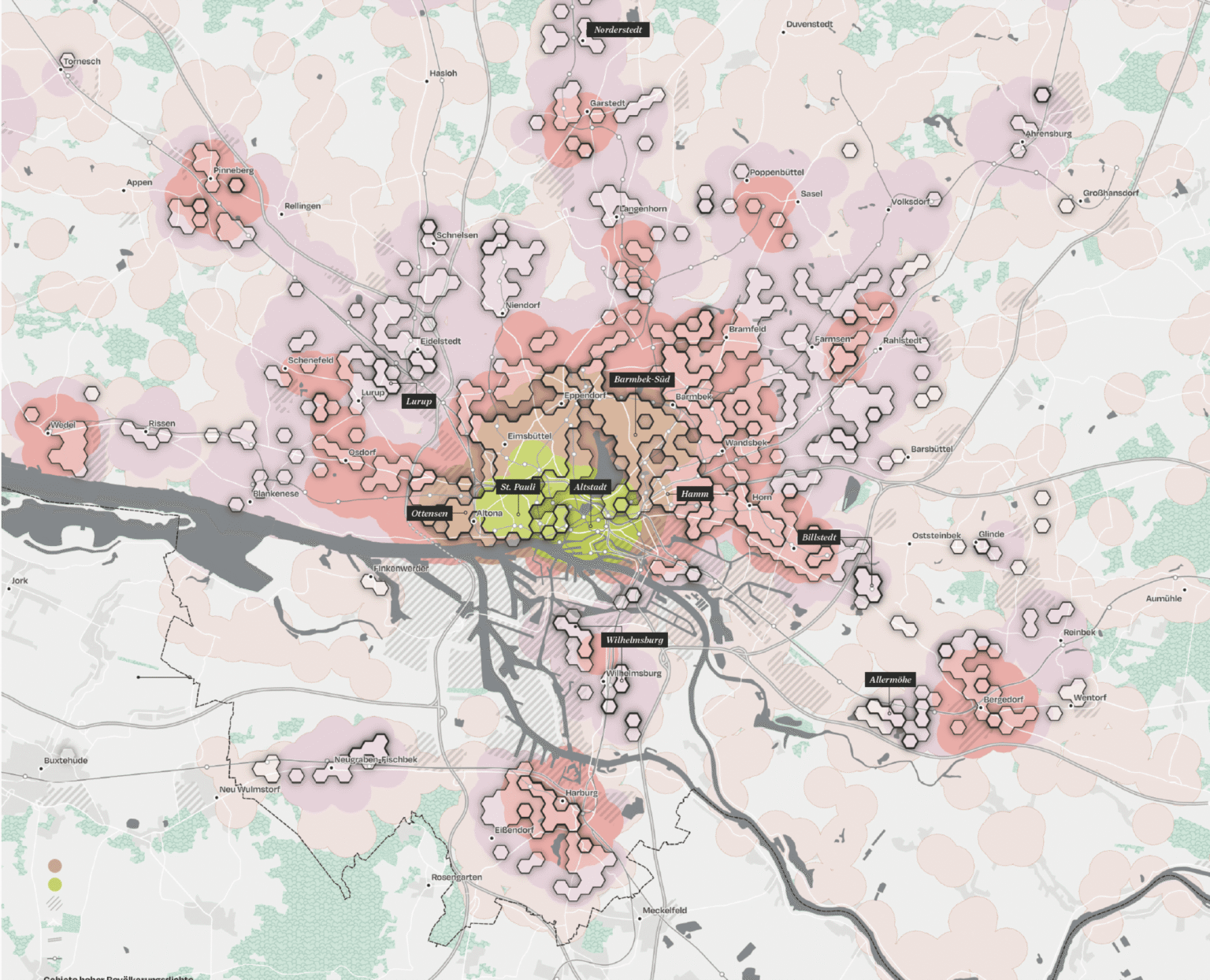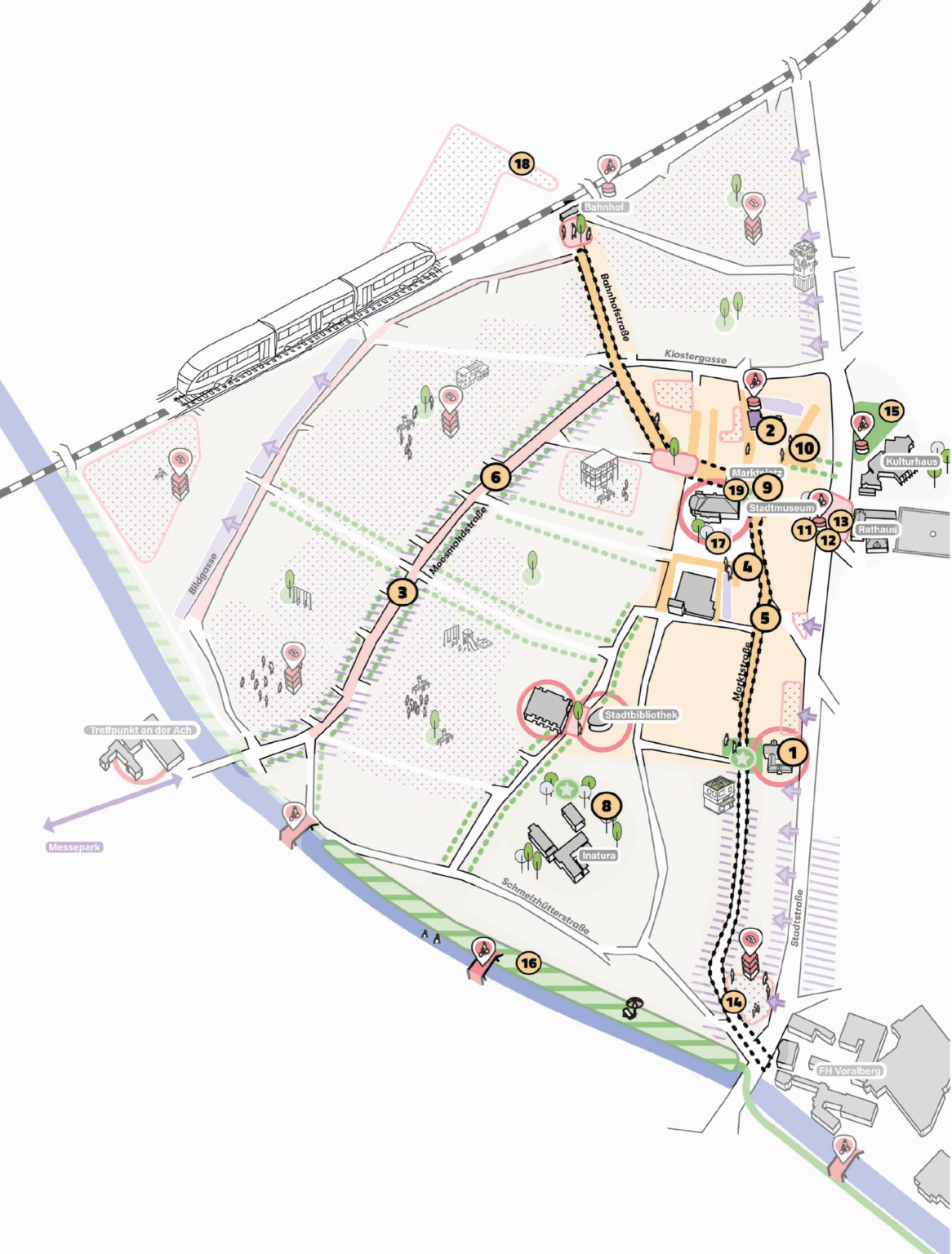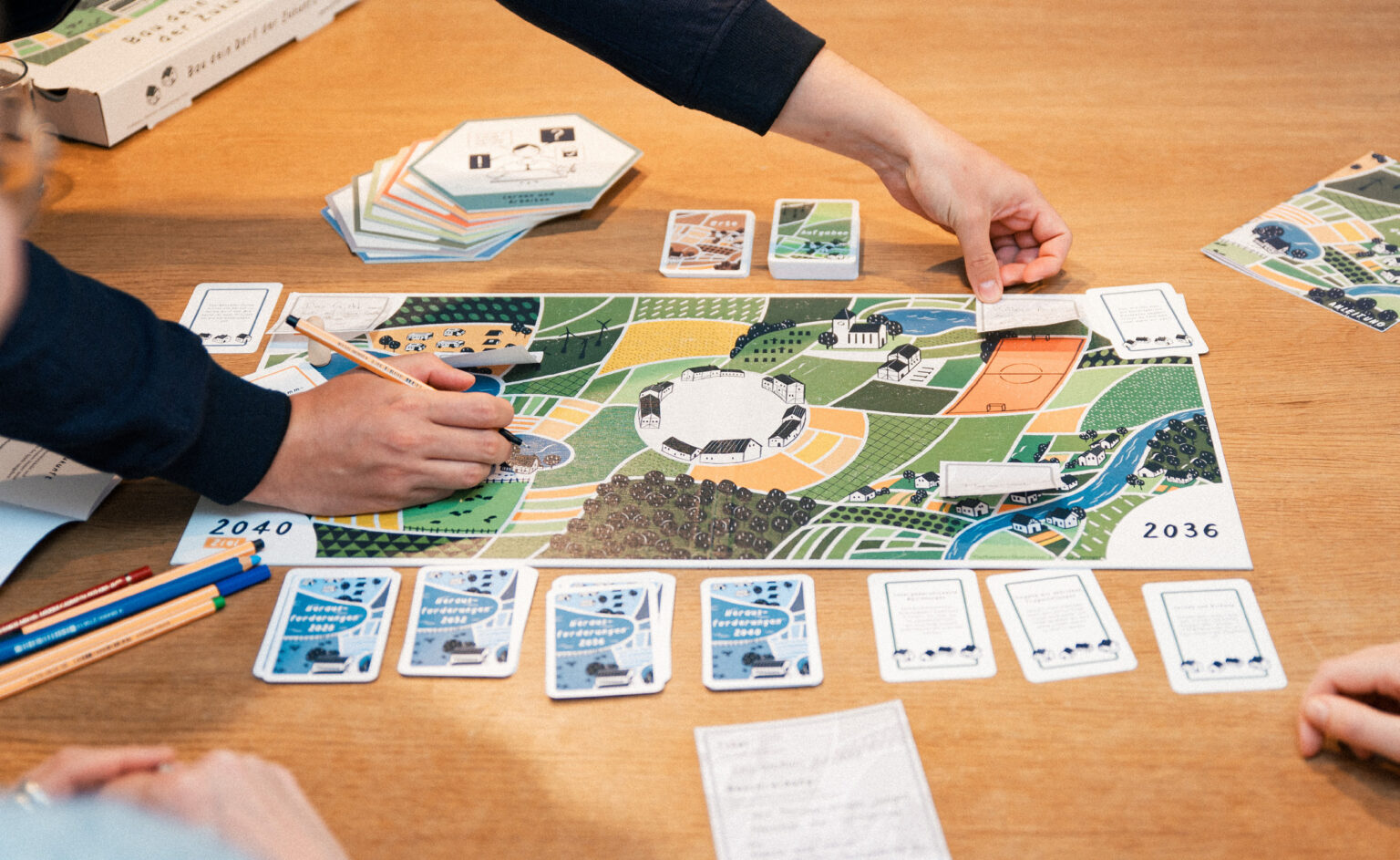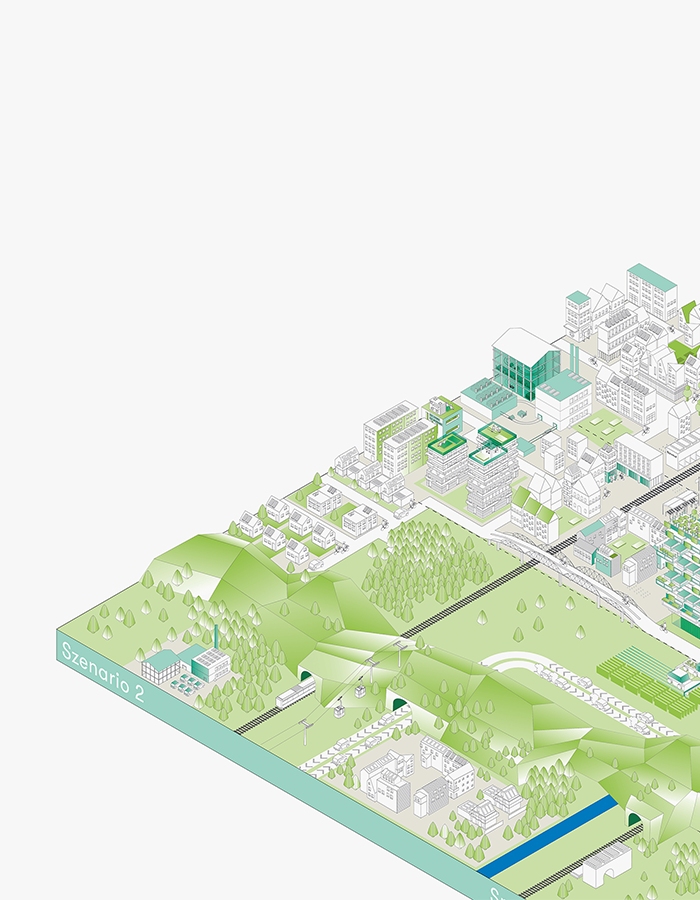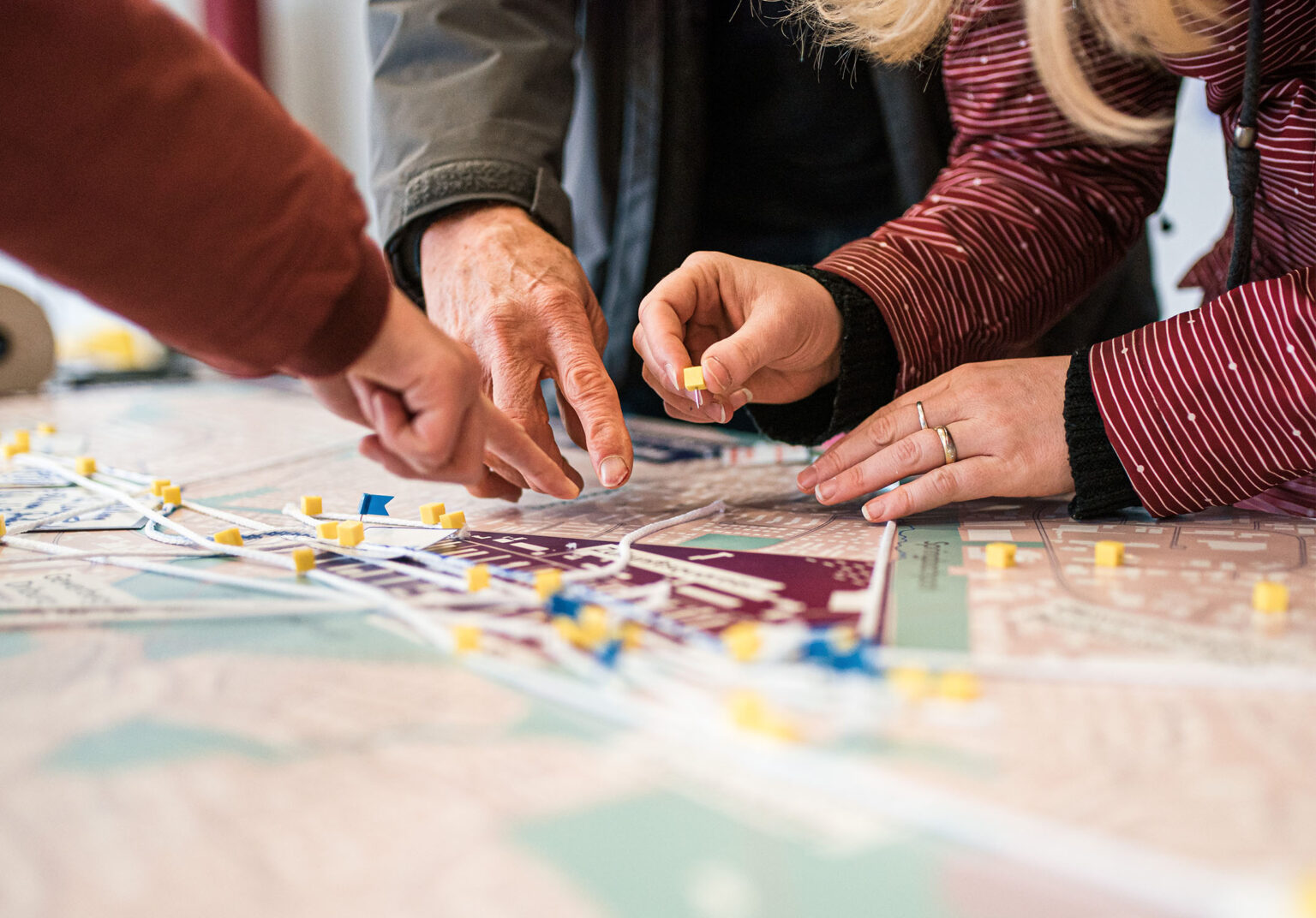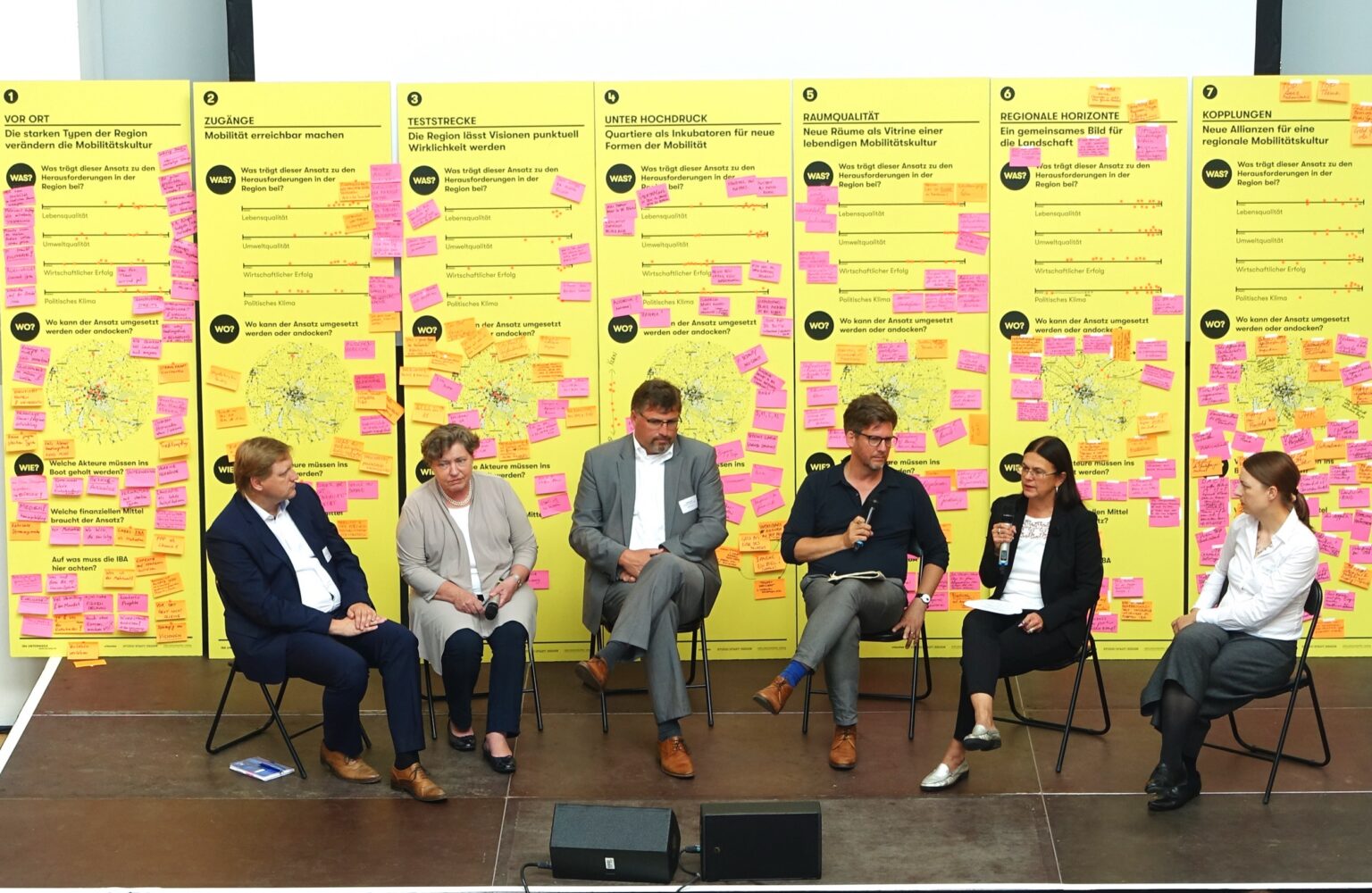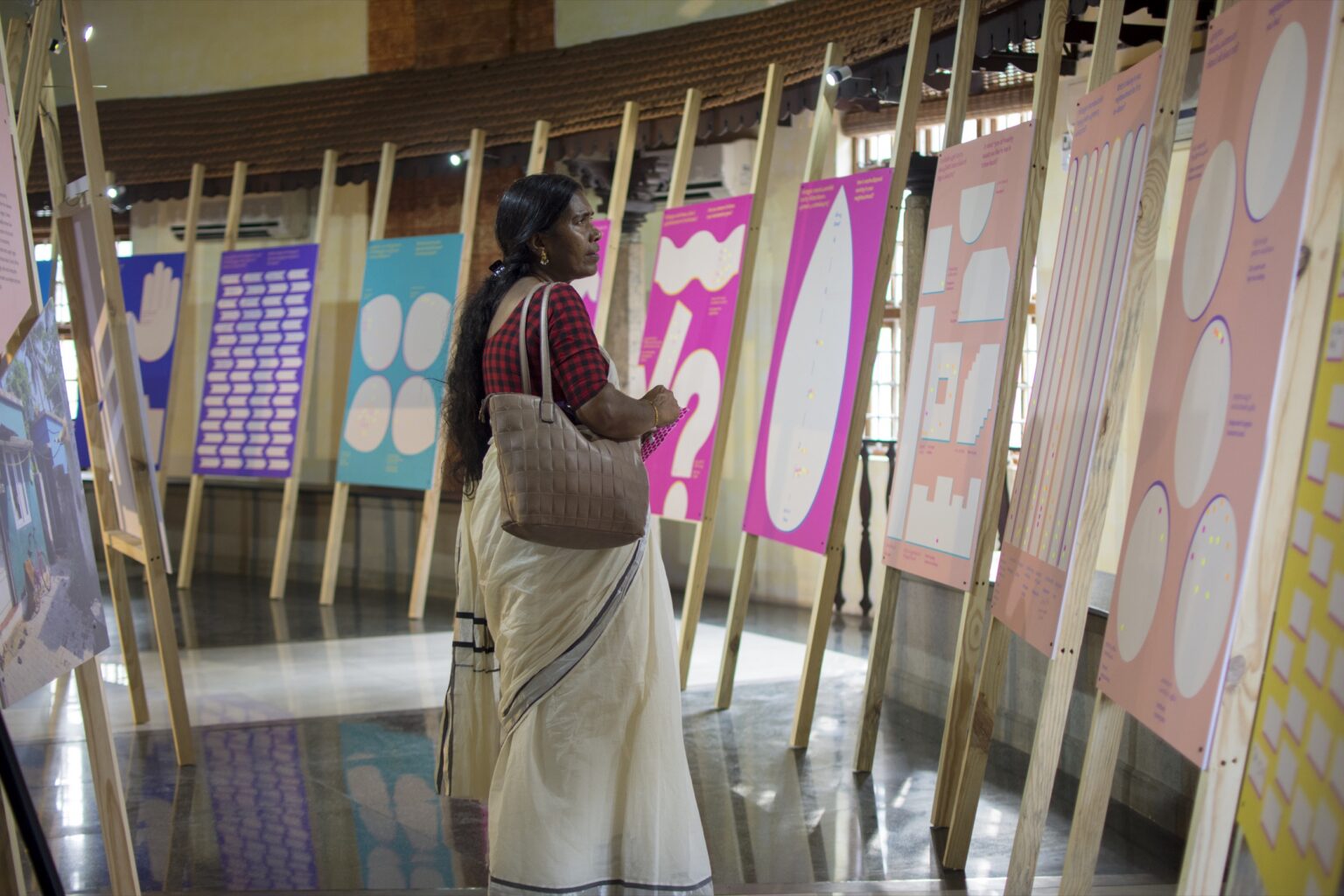
Wie kann die Stadt Köln heute und in Zukunft dem Stadtwachstum begegnen? Wie muss sich das Verkehrsnetz vor dem Hintergrund einer nachhaltigen Mobilitätswende verändern? Wo findet urbane Produktion ihren Platz? Wie steht es um die Freiräume in einer wachsenden Stadt? Und welche sozialen und kulturellen Einrichtungen braucht sie? Als wachsende Metropole mit endlichen Flächenressourcen steht Köln vor zahlreichen Herausforderungen. Um einen Kompass für eine zukunftsgerichtete, strategische und nachhaltige Stadtentwicklung zu entwerfen, erarbeitete die Stadt zusammen mit urbanista, ASTOC und urbanista.ch (früher: bureau für RAUMENTWICKLUNG) die integrierte Stadtstrategie Kölner Perspektiven 2030+.
In einem breiten, mehrstufigen Arbeitsprozess mit mehr als 40 Fachämtern und der Stadtgesellschaft entstand ein Wegweiser für die Kölner Stadtentwicklung: Die Kölner Perspektiven 2030+ zeigen auf, wo und wie Akteur*innen aus Politik, Verwaltung, Wirtschaft und Stadtgesellschaft in den kommenden Jahren ihre Kräfte bündeln sollten, um Köln als lebenswerte Metropole weiterzuentwickeln.
Schwerpunkt der Arbeit von urbanista lag dabei vor allem in der Erarbeitung strategischer Ziele und Empfehlungen für die zukünftige Stadtentwicklung der Stadt Köln, sowie in der Beteiligung und Einbindung vielfältiger Stakelholder*innen, sowie der Öffentlichkeit in den Prozess.
Projektzeitraum
2018 - 2021
Ort
Projektteam
Tristan Lannuzel, Astrid Großmann, Birte Kepp, Julian Petrin, Björge Köhler


